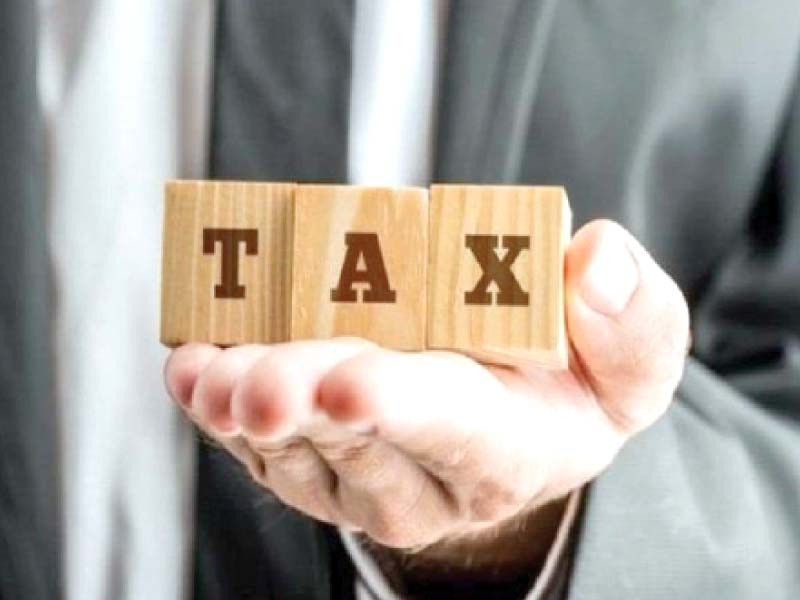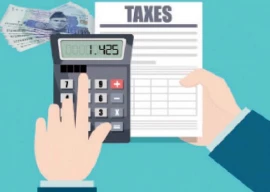
The government may rationalise realty sector tax regime in the next budget to generate Rs8 billion in additional revenues - a sum that is hardly 27% of what it can get by bringing property valuations of only Islamabad closer to fair market prices.
In order to collect additional Rs4 billion taxes, the gains of over Rs20 million from immoveable property may be taxed under the normal tax regime, finance ministry sources told The Express Tribune. Currently, the Capital Gains Tax (CGT) rate for the highest income slab of above Rs15 million is only 10%.
Compared to this a salaried individual pays 27.5% of his income in taxes, if the annual income is between Rs12 million to Rs30 million.
Similarly, sources said that the government was also planning to rationalise income tax rate for rental income of the property to generate another Rs4 billion.
The cumulative gain from these two measures is not more than Rs8 billion in the fiscal year 2021-22, which is only 27% of what the government is losing due to unrealistic revisions in property valuation rates for the suburb areas of Islamabad.
Read more: SRB announces tax incentive scheme
The Islamabad metropolitan areas prices have massively shot up in recent years but these have not been reflected in the April 29 notification by the local administration.
In January last year, the Islamabad Capital Administration had notified the property valuation rates for areas that have not been covered by the FBR valuation rates.
However, the local administration has twice downward revised these rates and latest revision came on April 29 this year, resulting into erosion of nearly Rs6.2 trillion value of these properties for taxation purposes, showed the comparison of the two notifications. The devaluation of property would cause about Rs30 billion tax losses every year, as these valuation rates are used as base to collect various taxes.
In July 2019, the federal government had further increased property valuation and brought them to 85% of the market prices. The purpose was to enhance federal tax collection on sale and purchase of land and apartments by minimising the difference between the actual prices and the district collector rates.
Currently there are three rates - the FBR rates, the district collector rates and the actual rates. Most of the black money is parked in the real estate sector and authorities have been trying for a long time to tap this area. However, due to various lacunas, the tax collection has always remained negligible compared with the transactions and returns on them.
The Financial Action Task Force (FATF) has also identified the real estate sector as a potential source of creating black money, which can be used for terror financing activities.
Now for Islamabad areas that are not covered under the FBR valuations, the district administration has lowered the rates, allegedly under political pressure, said the sources.
The district administration first revised the rates in June last year after local court asked to see whether there was possibility for any revision.
The value of land in ICT suburbs is continuously on the rise due to start of mega infrastructure and road projects but the city administration has chosen to lower it.
Land that is worth hundreds of millions of rupees has been valued in few million rupees, showed the two notifications. It seems that the rates have been reduced without any empirical basis, and land value has been whimsically reduced many times below the market value, only to appease pressure groups and real estate sector players, said the sources.
In July 2019 FBR notification of Islamabad property, many prime real estate areas had been excluded and left to ICT administration, which has resulted in huge revenue loss and tax evasion. The land that in the revised ICT notification is categorised as agriculture and rural land can actually be used for prime commercial activities like, high rise apartments and plazas, educational institutions, petrol pumps, and marques.
In Zone-II of Islamabad that is along the Grand Trunk road, the property valuation rates have been reduced in the range of 25% to a whopping 82% per marla, which has resulted into a revenue loss of Rs7 billion a year. Along GT road, average reduction is Rs1 million per marla and Rs20 million per kanal.
The analysis of land located along the Islamabad Expressway from Faizabad to Rawat in Zone V of ICT suggests that the local administration has reduced up to 85% against various categories, showed the comparison of the two notifications. This will result into a revenue loss of Rs12 billion a year.
The average reduction in valuations is around Rs800,000 per marla. In this area, prime land has been devalued by about Rs1.84 trillion in Zone-V, said the sources.
The situation is not different in Zone IV along the Murree road and Leterhar road where the value of land in all the villages has been drastically reduced, without any field survey or empirical analysis. About Rs11 billion worth of tax will be lost in this area in Zone IV of the ICT due to reduction in land evaluation.
Sources said that the income of the property developers and dealers largely remain untaxed due to such radically low rates, which the FBR can capture by adding these areas under its property valuation tables for the next fiscal year. The whole of Islamabad has already been declared as a metropolitan and there will be no legal bar on the FBR.
The property valuation rates have been changed on court orders and parliament directions and in light of over 300 references filed against January 2020 notified rates, said Islamabad Deputy Commissioner Hamza Shafqaat. He said that a committee had been formed to probe and it divulged that January 2020 rates were too high.
An internal exercise was done again and rates were compared with Rawalpindi and then revised after getting consent from government, he added. The NA Standing Committee on Interior had recommended reducing rates, which the government also approved, said Shafqaat.
For the sake of a $500 million loan, the World Bank has also placed a condition that the provincial authorities would adopt the FBR rates. Instead of adopting these rates, the ICT administration has drastically reduced them, resulting into annual revenue loss of Rs30 billion.
Published in The Express Tribune, June 2nd, 2021.
Like Business on Facebook, follow @TribuneBiz on Twitter to stay informed and join in the conversation.





















COMMENTS
Comments are moderated and generally will be posted if they are on-topic and not abusive.
For more information, please see our Comments FAQ